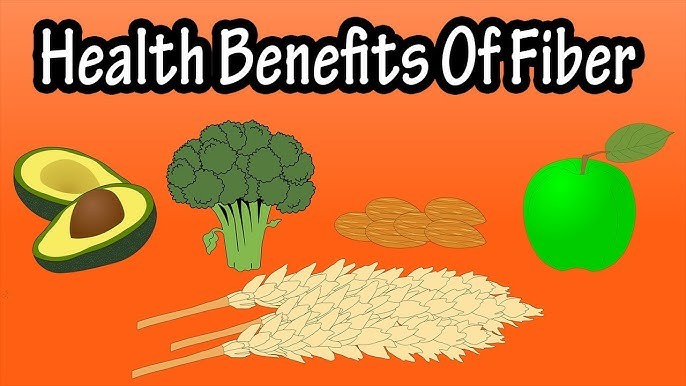In the intricate symphony of the human body, every function, from the most basic cellular activity to complex cognitive processes, relies on a constant and precise supply of essential vitamins and minerals. While a balanced diet is designed to provide these vital components, various factors—ranging from modern agricultural practices depleting soil nutrients to individual dietary choices, stress, and certain medical conditions—can lead to subtle yet significant deficiencies. Often, these deficiencies manifest not as dramatic illnesses, but as a collection of seemingly unrelated symptoms that subtly erode our energy, mood, and overall well-being. Recognizing these early warning signs is a crucial step towards proactive health management, allowing for timely intervention and the restoration of optimal function.
One of the most common and often overlooked indicators of potential nutrient deficiencies is persistent fatigue or low energy levels that are not solely attributable to lack of sleep or excessive workload. While a demanding schedule can certainly cause tiredness, a deeper, chronic fatigue that doesn’t resolve with rest might point to insufficient iron, Vitamin B12, or Vitamin D. Iron is essential for producing hemoglobin, the protein in red blood cells that carries oxygen throughout the body. A deficiency, known as anemia, leads to reduced oxygen delivery, resulting in profound tiredness, weakness, and even shortness of breath. Similarly, Vitamin B12 is vital for energy production and nerve function, with a deficiency often manifesting as extreme fatigue, weakness, and cognitive fogginess. Vitamin D, beyond its role in bone health, is increasingly recognized for its impact on energy and mood, with widespread deficiency contributing to generalized fatigue. Imagine attempting to run a complex operation with an underpowered engine; that’s the feeling of nutrient-induced fatigue.
Beyond generalized tiredness, changes in skin, hair, and nails can serve as visible clues to internal nutritional imbalances. Dry, scaly skin that doesn’t respond well to moisturizers might suggest a deficiency in essential fatty acids (like Omega-3s) or certain vitamins such as A or E. Brittle nails that chip or break easily, or hair that is thinning, dull, or prone to breakage, can signal deficiencies in biotin (Vitamin B7), iron, or zinc. For example, a persistent dry, scaly patch of skin that resembles eczema might improve dramatically with increased intake of Omega-3s from fatty fish or flaxseeds. These external markers are often the body’s way of signaling an internal nutritional deficit, reflecting a compromise in the building blocks required for healthy tissue regeneration.
Frequent illness or a weakened immune system is another strong indicator that your body may be lacking critical nutrients. Vitamins C and D, along with zinc, are paramount for a robust immune response. If you find yourself constantly catching colds, experiencing prolonged recovery from minor infections, or battling recurrent bouts of the flu, it’s worth evaluating your intake of these immune-modulating nutrients. Vitamin C, a powerful antioxidant, is crucial for white blood cell function. Vitamin D receptors are found on nearly all immune cells, influencing both innate and adaptive immunity. Zinc plays a vital role in immune cell development and function. A diet lacking in these elements leaves your body’s defenses vulnerable, like an army without sufficient ammunition.
Furthermore, mood disturbances and cognitive issues can often be rooted in nutrient deficiencies. While mental health is complex, a lack of certain vitamins and minerals can certainly exacerbate or contribute to symptoms of anxiety, depression, irritability, and poor concentration. Magnesium, for instance, is involved in over 300 enzymatic reactions in the body, many of which regulate neurotransmitter function and stress response. A deficiency can lead to anxiety, restlessness, and difficulty sleeping. Similarly, various B vitamins (B6, B9-folate, B12) are essential for the synthesis of neurotransmitters like serotonin and dopamine, impacting mood and cognitive sharpness. Omega-3 fatty acids are also crucial for brain health and have been linked to reduced symptoms of depression. If you’re experiencing a persistent mental fog or unexplained shifts in mood, alongside other physical symptoms, considering nutrient intake becomes highly relevant.
Digestive issues, beyond common upset, can also be a silent alarm. While many factors influence gut health, chronic constipation or diarrhea, bloating, and poor nutrient absorption could indicate deficiencies. For example, a lack of dietary fiber, often found in fruits, vegetables, and whole grains, can lead to chronic constipation. Moreover, some nutrient deficiencies can impair digestive enzyme production, leading to poor absorption of other vital nutrients. The gut is our primary interface with the food we consume, and its optimal functioning is intrinsically linked to nutrient assimilation.
Recognizing these signs is not an invitation for self-diagnosis or self-medication with vast arrays of supplements. Instead, it’s a prompt for proactive engagement with a healthcare professional. A thorough medical evaluation, including targeted blood tests, can accurately identify specific deficiencies. Based on these findings, a doctor or a registered dietitian can provide personalized dietary recommendations, suggest appropriate supplementation, and address any underlying health conditions that might be impeding nutrient absorption. This informed approach ensures that interventions are tailored to your unique needs, restoring balance and paving the way for improved energy, mood stability, and overall vitality. In essence, our body is constantly communicating; learning to interpret its subtle signals regarding nutrient status is a powerful step towards true well-being.




